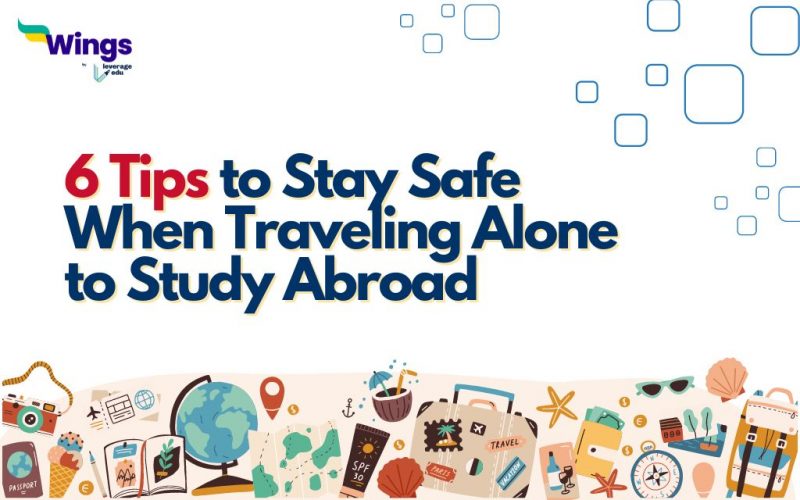One experience that impacts us for the rest of our life is studying abroad. No matter where we choose to study or work overseas, the experience is always considered exceptional. However, one needs to do a lot of preparation and research before flying immediately to a foreign country in order to make this abroad experience special and memorable. Our blog aims to share some of the most helpful tips for staying safe when traveling alone to study abroad. Let’s get going.
An Enormous Amount of Research
One must comprehend the practical aspects of studying abroad before daydreaming about “Chilled and Filmy” college life. Additionally, for the entire time, you were just examining the programs and colleges, the country in which you must have been longing to study is completely foreign to you. All of your information comes from things you have heard or read. However, it’s equally crucial that you do your homework on some other factors, such as your intended lodging, the climate in that location, the local language, and the best mode of transportation, to mention a few. All of them are required because you want to avoid arriving in a new nation and being surprised by many things. For instance, learn about the safety precautions offered to international students and the safety ranking of that nation. What is the safest time to travel alone, how secure is it for a student to travel alone, and how safe is public transportation? The most important thing for a student to thoroughly research is the safest and most pleasant place to stay, as well as the customs and norms observed in that specific area.
Knowing things in advance not only makes you smart but also equips you with everything in a foreign country.
Aim to Adapt Quickly
Adjusting to a new environment may be difficult when you don’t know anyone. It is best to instantly blend in with the locals to avoid drawing unwanted attention. It seems reasonable that learning a new language rapidly brings a range of problems, but mastering a few essentials and getting to know nonverbal cues could turn out to be both a game-changer and a lifesaver for you.
Duplicate Document Backup
Make copies of essential documents, such as your passport, visa, and hotel and flight confirmations, Academic credentials, and store them separately from the originals. You might also retain a digital copy on your tablet or smartphone. Having a duplicate helps speed up the process of getting replacement documents if a lost or stolen document occurs. Additionally, Plan out what you’ll do in an emergency as well. Before you depart, make a note of or keep the numbers digitally for the local embassy and consulate as well as emergency services.
Keep Your Dear Ones Informed
Your loved ones will be more relaxed knowing where you are at every stage of your journey, and they will be able to find you if something bad ever happens. Beforehand, give them a brief rundown of your everyday schedule. For example, you might mention the average amount of time you spend each day commuting to school, your local travel schedule, the specifics of your housing arrangement and your roommates, sharing live locations when travelling to any new area, etc. Make sure they are aware of any schedule modifications.
Laws of an Unknown Land
Get to know the laws, rules, and regulations that the government has established in a country before getting to know its citizens. Every country has its own set of laws, which are adhered to by its residents. While some countries may be liberal with certain activities, others may view them as strictly criminal offences. As a result, it is imperative that international students have a thorough understanding of a country before they stay there. It’s crucial to keep emergency phone numbers always accessible.
Maintaining Health
It might be expensive to deal with being sick frequently and seeing a doctor. Try to prepare your own meals whenever feasible to prevent such circumstances, and if that isn’t possible, at least choose healthy selections when dining out. You will also benefit from maintaining a close eye on your diet, drinking plenty of water, and tailoring your activities to the local climate.
Further, If possible, take enough of any necessary medications to last the duration of your stay (if it’s short term), or make arrangements to have your prescription filled abroad. Having a sufficient supply is crucial because sending medications by mail is typically against the law. Take health insurance with you as well, and be sure it covers any emergencies or other medical needs you may have while travelling.
Follow Leverage Edu for more interesting blogs about studying abroad.

 One app for all your study abroad needs
One app for all your study abroad needs






















 45,000+ students realised their study abroad dream with us. Take the first step today.
45,000+ students realised their study abroad dream with us. Take the first step today.

